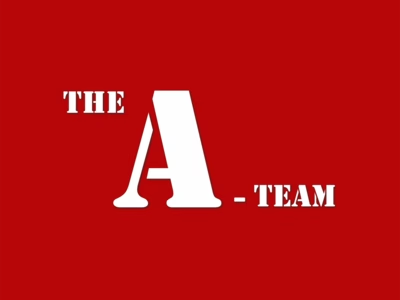The 'A' TEAM is one that is 'appropriate' for your needs. Not necessarily the cheapest. Or the flashiest. Or the biggest. In fact 'appropriate' will mean different things to different people who have different requirements - and this is the key.
So here are the 5 universal principles you should bear in mind which will help you select the right team to help you, no matter what your requirements are.
The 'APPROPRIATE' team is always:
1 - Focused on their clients rather than own egos and achievements - and most importantly (wait for it)… they actually LISTEN to you
In your initial consultation with them, they take the time to find out lots about your business and your overarching goals, because they'll want to make sure your needs are properly met, and that your site returns on its investment too. In fact, they'll also not be afraid to tell you if they think you're not the right client for them, either, based on your needs.
In your initial consultation with them, they go on about their accolades, tell you more about their latest cool project and their other clients than listening to your needs. They're so busy talking about themselves, that you come away wondering if they did actually grasp (or even hear?) what it is you wanted...
2 - Able to provide a team you feel you can work with who don't blind you with science
When talking about the technology they offer, it's referred to as a tool, not the epicentre of their universe (even if they're passionate about it!). They can explain easily and simply how they will use the best technology in order to solve the right problems for you.
When talking about technology, they eulogise so much about their use of the latest technologies, using terms you don't understand, that you end up totally baffled. You don't even understand how what they are talking about relates to the problems you need solving.
3 - Flexible in their approach, so they can deliver your work in phases or as a 'big bang' launch, can partner with you to figure out the right scope for your budget, and deliver it in a way that works best for your business
When taking you through their process, they speak about different delivery methods, project management methodologies, and approaches. They want to know how your business likes to receive information, who the key stakeholders are and what roles they will play in the project, encourage your involvement, and give you clear choices (but also won't be afraid to advise you when they think something may not work, based on past experience).
When taking you through their process... oh, they don't have a process? Don't mistake 'super-flexible' for 'totally disorganised'! Conversely, if their process is so rigid, and their cost structure so obscure, that you dread to think what will happen to your budget if you have any unforeseen amends half way through the project... then trust your gut, as you could end up being held to ransom in order to finish your project.
4 - Experienced in the right range of skills to meet your needs now, but also to grow with you and support you going forward - both from a software and a relationship perspective
Their capabilities interleave together - they offer services which not only might be useful to you right now, but also in future. They demonstrate the appropriate depth of experience needed for the size and complexity level of your project both now, and the next 1-2 years, so they are capable of growing with you from small acorns to large oak trees, if that's what you require. They have a significant amount of repeat business from loyal customers who they've been working with for over a year or more.
You're unclear who does what at their organisation, and they're evasive and non-specific about who delivered what for which of their projects. Or they may have a clear team with clear roles and skills, but they are 'hit and run' deliverers... when asked about ongoing relationships with clients, they avoid the subject and don't have any evidence of growing with a client's requirements at all. Just a handful of one-offs. Which leads us nicely to the final point...
5 - Able to do what they're saying they can
They have a range of case studies and testimonials available for you to look at which demonstrate their skill sets and the clear ROI the projects drove, and would be more than happy for you to talk to existing clients.
They don't really have much proof available to back up their claims, and become evasive when asked about speaking with any of their clients or when asked for testimonials.










